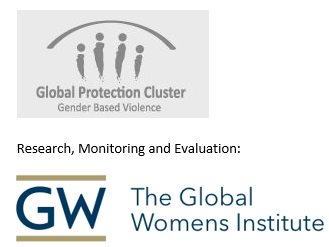- In 1999, the Inter-Agency Standing Committee (IASC) established a Task Force on Gender and Humanitarian Assistance to support the mainstreaming of a gender perspective into the IASC system. The Task Force was responsible for publishing the IASC GBV Guidelines (2005) and the GBV SOPs and included in its workplan strategies to improve efforts to address VAWG in conflict-affected settings. In 2006, the Task Force was replaced by the Sub-Working Group on Gender and Humanitarian Assistance to support gender as a cross-cutting issue into the cluster approach and into other elements of the humanitarian reform.
- The Gender SWG:
- Supports the dissemination of standards for good practice (Gender Handbook, GBV Guidelines),
- Builds the capacity of humanitarian actors (See Gender E-Learning courses)
- Supports the collection and use of sex and age disaggregated data for decision-making, for example through technical assistance
- Supports the collection and use of sex and age disaggregated data for decision-making, for example through technical assistance
- Strengthens accountability systems, and
- Supports the Gender Standby Capacity Building Project (“GenCap”).
- The Gender SWG’s members as of 2013 are: Human Rights Education Associates (HREA), Norwegian Refugee Council, MSF, Gender and Mine Action Programme, OCHA, UNDP, UN Women, ICVA, WRC, UNHCR, UNICEF, InterAction, GenCap, IASC Secretariat, Inter-Agency Network for Education in Emergencies, Geneva Centre for the Democratic Control of Armed Forces, International Federation of Red Cross and Red Crescent Societies, International Committee for the Red Cross, Mercy Corps, GBV Prevention Group, Save the Children, UNFPA, IMC, Relief International, GenderConsult, USAID, Counterpart International, Humanitarian Assistance Program of the Josef Korbel School of International Studies. For more information, go to the SWG’s website.
Additional Resources:
The IASC GenCap project seeks to build the capacity of humanitarian actors at the country level to mainstream gender equality programming, including prevention of and response to GBV, in all sectors of humanitarian response. GenCap consists of a pool of gender and GBV advisors to be deployed on short notice as an interagency resource to support the UN Humanitarian/Resident Coordinators, humanitarian country teams and cluster/sector leads in the initial stages of sudden-onset emergencies. See GenCap for more information.
See additional information on Gender as a cross-cutting issue in humanitarian reform.
